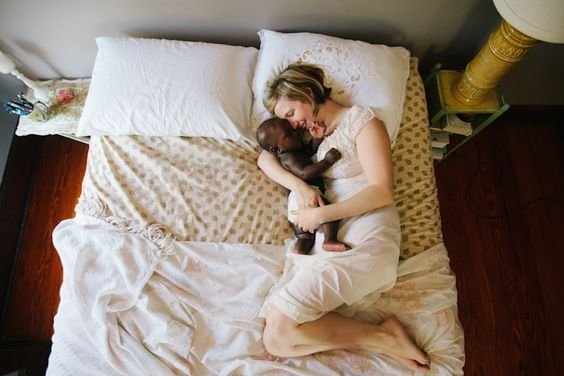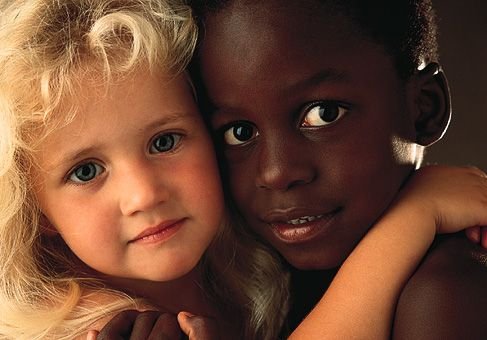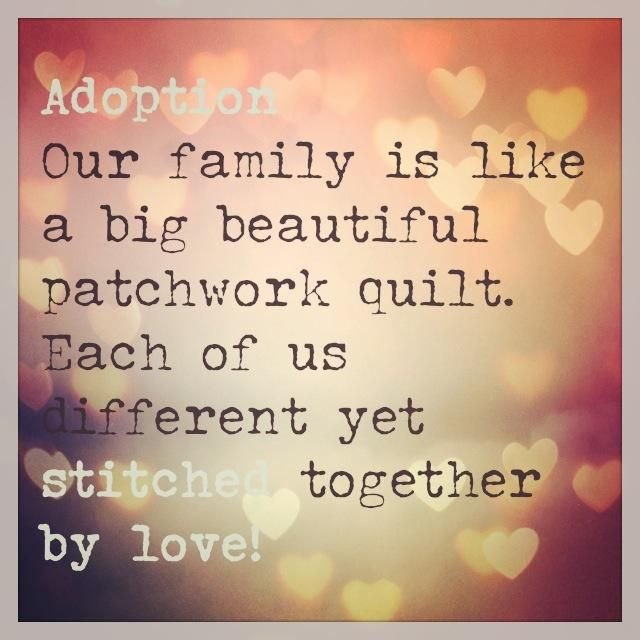Although my country is more often known for its high crime rate, poverty and lions that apparently roam freely while we ride our zebras to work, this beautiful rainbow nation of mine certainly has more to offer. We are a land of different races, cultures and religions and it is up to us to embrace them and appreciate them. This in fact is one of the realizations that came to me a few years ago when my husband and I decided to grow our family through adoption.
When we started the adoption process we were made aware of many things; we were issued with piles of documents to complete and submit (these documents were a hassle to complete since the assistance in our governmental departments is extremely poor), we were told that the waiting period for a child to be matched with us could be anywhere from 1 month to 5 years (depending on the race we specified) and lastly, we were told that the chances of adopting a white baby in South Africa where slim to none.
Transracial adoption in South Africa has another distinctive feature: this may be the only country in the world where a racial minority regularly adopts from the racial majority. “South Africa is unique in that way,” says Pam Wilson, head of adoptions at Johannesburg Child Welfare.

For my husband and I, none of the above were issues. At this point we had tried to conceive for over 5 years and we just wanted to start our family, we just wanted a child. Race, gender and culture were no specification to us, we simply wanted a little bundle in our arms as soon as possible, we were so ready! Not all of our family members and friends felt the same way however. Those from older generations frowned upon the notion of adopting a black, Indian or colored child into the family, this was scandalous news to them. Many verbalized their feelings while other went as far as not speaking to us, they actually ignored our conversation completely!
While most congratulated our decision and shared in our excitement, the negative comments of those who I had once thought were more open-minded individuals unsettled me. What was their problem? A child is a child right? RIGHT! It was at this point that my hubby and I started volunteering at a home for abandoned babies, all of whom were black children, mostly from the Zulu culture. We got to spend time with these babies and let me tell you, there really is no difference apart from the tone of their skin. We fell in love with these kids and the negative remarks and cold shoulders that were thrown our way were immediately disregarded. I felt pity for those who couldn't see passed the color of one's skin.
Adding to this, it is now a fact that there is currently a huge adoption crisis in our country where babies are being abandoned daily and the system in the Department Of Social Development is in dire straits. This means that there are more adoptable children in the system than their are individuals/couples wanting to adopt. One of the reasons is that many are still afraid/too ignorant to adopt a child from a different race from them. I truly believe that in South Africa, and possibly world-wide, that there is a strong need for families to consider adoption instead of leaving their nation's children forgotten in a system - race at this point needs to be put aside.
2014 statistics: there are 520 children on a waiting list to be adopted in South Africa – all but 21 of them black. Meanwhile, of the 351 prospective adoptive parents, which includes 14 black families, 215 white families, 72 Indian families and 50 coloured or other families, just 70 are willing to adopt a black child, whereas 61 will take a “mixed race” child, and 119 a coloured child – the rest are waiting for the rare prospect of a white or Indian child. (Mixed race apparently refers to a child with parents who are of two different races, and coloured refers to a child with two coloured parents.) - https://mg.co.za/article/2014-11-06-transracial-adoption-loving-gift-or-theft-of-culture
If you read the above statistics you will notice that there are only 14 black families who are on the list waiting to adopt. While white people have a hard time accepting racial differences, it seems the black communities have their own issues with adoption. In many black cultures adoption is frowned upon, its not in their natural order. In fact, black people get upset when the see black children adopted by white families. This is a huge problem in our country and I truly believe that our government needs to educate the people on how beautiful adoption is, so that at the very least, it can help move more children out of "the system" and into loving homes.
One of the big questions that arises, from all races, is "what about the child's culture"? Many are concerned, skin colour aside, that the children will have difficulties adapting and growing in cultures that are different to those of their biological parents and ancestors. While some make a point of introducing the child's culture into their family dynamics, others agree that culture is not something that is genetically inherited, instead it is created by the family system. Either way, a child having a safe and loving family overrides this obstacle. I you can secure a good relationship with your adopted child, you will be able to help steer his or her course in the direction that is best suited for him or her.

Despite all the difficulties, ignorant minds and concerns regarding adoptions in South Africa, there is a rainbow at the end of our rainbow. Each year, albeit slight, there is growth in the numbers of families who have adopted transracially and they have established beautiful communities with others who have colourful families like theirs. They are true advocates of adoption and are proof that adopting from a different race really isn't an issue...at all!
In 2015 my husband and I got the call to say that we were matched with a baby boy, it turned out he is white, even though we were open to any race and told our social worker so. We were quite taken aback actually and while we were ecstatic to become parents, we felt a little sad, because all the while we had imagined and pictured holding a little brown-skinned child - we felt a little loss actually. Next year we start the adoption process again (yey!) and this time we will specify that we want a child from another race - we WANT to be a rainbow family, a family that is a true picture of what love really means.

 Team South Africa banner designed by @bearone
Team South Africa banner designed by @bearoneMuch love - @sweetpea
(bringing you original content)
